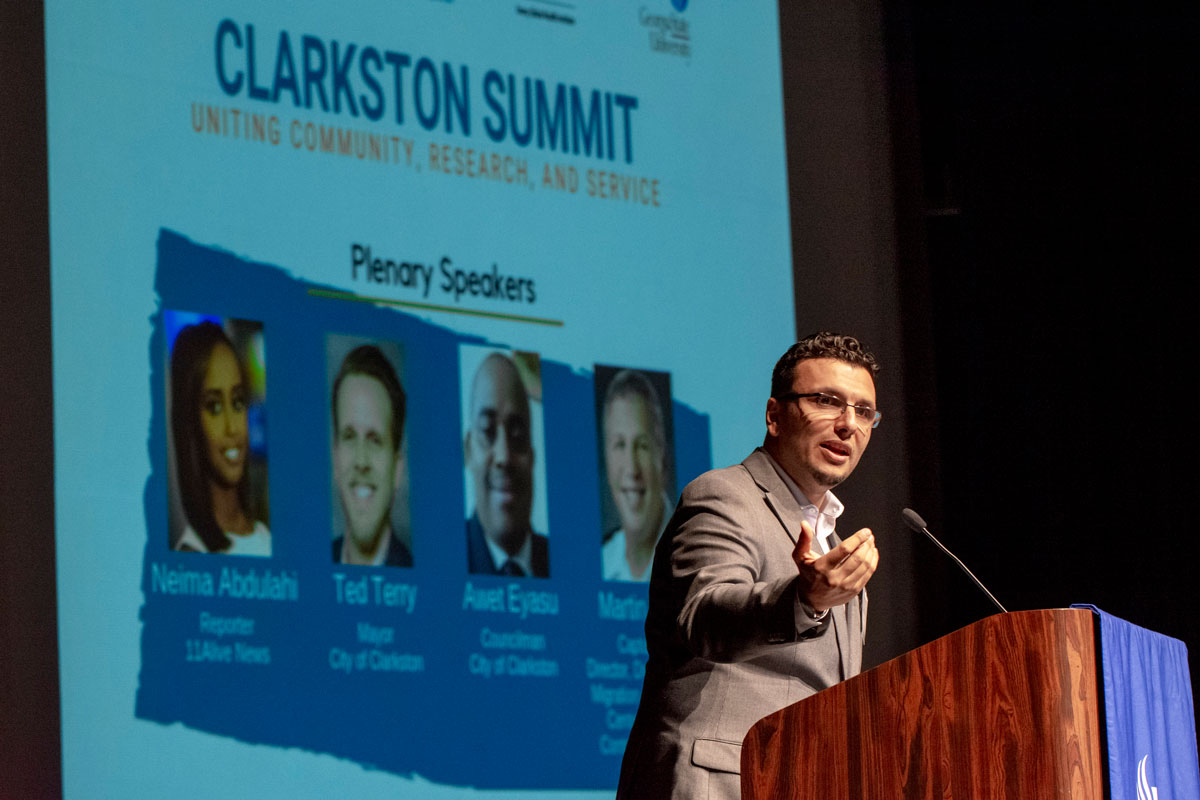Dreams Get Real
A landmark gathering puts 'the most diverse square mile in America' on the map, finding new routes for those who need help.

In November, more than 250 members of the Clarkston refugee and immigrant communities, Emory and Georgia State University (GSU) researchers and volunteers, and community organization representatives met at GSU’s Clarkston campus to learn from each other and lay a foundation for future engagement.
The Clarkston Summit was the first major effort of the recently established Refugee and Immigrant Health and Wellness Alliance (RIHWA)—a partnership among the Emory Global Health Institute, GSU, Kaiser Permanente of Georgia, the DeKalb County Board of Health, numerous refugee resettlement agencies, and other organizations working with refugees and immigrants.

Dream Team: Leaders of the new Refugee and Immigrant Health and Wellness Alliance, the planners of the first Clarkston Summit, were rewarded with an unexpected turnout of more than 250 community members as well as representatives of related organizations.
Heval Mohamed Kelli 15MR, a Kurdish refugee from Syria who came to Clarkston after 9/11 and is now a cardiology fellow at Emory, first envisioned the summit in 2016 with Mary Helen O’Connor, director of the Center for Community Engagement at GSU’s Perimeter College.
“There are so many great things going on to help the refugee and immigrant communities, but people are not talking to each other. Some people are doing the same things in different pockets of the community,” says Kelli.
“This was one of the first events of its kind to bring everyone together to communicate with each other and collaborate.”
Coordinating efforts in the community—described as the most diverse square mile in America—could lead to more successful applications for grants and other funding to support the variety of services offered to area residents, many of whom are underserved or live in poverty.
Thanks to the Clarkston Summit, the RIHWA now has concrete data on the needs of the community and will focus their efforts on the most pressing, applying for appropriate grants and finding the right partners to tackle those needs, Kelli says.
He points to three fundamental areas where the community should concentrate efforts.
“Number one is providing a good education, because without a good education you can’t advance in this country,” Kelli says. “Number two is health care. If you are not a healthy person, you can’t advocate for yourself. There is no social justice without health justice.
“The last thing is that all physicians should use their position to be involved in social advocacy beyond health care. It is imperative for physicians in the community to really try to use their power to advance the community for the benefit of our patients.”


